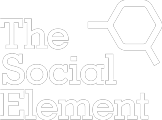It’s been another turbulent month for social media platforms. With Snapchat using artificial intelligence, Twitter getting a new CEO to try and steady the ship, and Montana outright banning TikTok, there’s a lot to cover!
Is Twitter no longer a “high-risk” for advertisers?
Linda Yaccarino’s appointment as CEO seems to have calmed the world’s biggest advertising buyer, GroupM, which no longer sees Twitter as “high-risk”.
However, this may not be a message brands are quite ready to believe. Since the announcement, we’ve seen Ben & Jerry’s say that it’s ending paid advertising due to the “proliferation of hate speech” on the platform. (A situation that we could see get even worse as safety execs leave Twitter.)
https://twitter.com/benandjerrys/status/1663938640102211590
The truth is, if a social media platform isn’t properly moderated, it can quickly become a toxic mess, leaving brands with no choice but to remove themselves.
We’re recommending that brands that have paused or dialled back their Twitter advertising don’t rush back in. It will take some time to see what impact Yaccarino’s appointment will have on the app.
We can expect the new CEO to change ad opportunities and cost structures quite soon, but we will need to see how these changes affect user experience.
One major user complaint since the Twitter Blue changes came into effect is that many tweets that gain traction have Twitter Blue account responses prioritised in the replies. When these accounts reply to a tweet promoting inclusion – for example – with hate and harassment, their tweets are prioritised and are the first ones seen under the tweet. In the old days, most of the tweets would have been buried.
Twitter’s new CEO has a lot of work on her hands if she wants to make the platform a more welcoming place for everyone.
Instagram rumoured to be developing a Twitter rival.
There’s still a gap in the market for a Twitter rival that offers a compelling enough experience for disenchanted Twitter users. Mastodon is probably the best alternative right now, as Bluesky is still invitation-only. But, some people are holding out for a more traditional social media experience.
Meta has already confirmed that it’s exploring a “decentralized social network for sharing text updates”, but one newsletter has published a slide showing us what this app could look like.
The speculation is that it’ll allow Instagram users to log in with their Insta details and use their existing usernames. Accounts you’ve blocked on Instagram will also be blocked on the new app. It’s also been suggested that it will be compatible with Mastodon.
Snapchat’s AI chatbot raises privacy concerns.
Snapchat is facing a backlash from users, who are worried about its new AI chatbot. There’s been some confusion over how the AI knows a user’s location and what the “ghost mode” setting actually does on Snapchat.
The AI’s also doing strange things, like telling the user their location and then apologising and saying it doesn’t know their location once the user asks it how it knows that or says that it shouldn’t know.
Parents are worried that the AI – which Snapchat has designed to be conversational and a bit of a companion – is encouraging their children to overshare personal information with the app. Snapchat has said it will be adding a family centre, which will show parents how their children are interacting with the app via conversation history.
Some users annoyed that they couldn’t unpin the chatbot from the top of their chat (unless they paid for a subscription), said that they were just going to delete Snapchat instead. AI continues to be controversial. Regulators are looking at how to ensure the technology is safe to use. Currently, the UK has opted for a light touch/pro-innovation approach, while the EU is hoping to set the global standard for AI regulation once member states approve draft legislation. The US has yet to set out plans for regulation.
TikTok fights against ban in Montana.
The US State of Montana has banned TikTok, a move which will take effect on 1st January 2024 unless a legal challenge blocks it or the app is sold. TikTok is suing the State, saying that the ban goes against freedom of speech (namely, that the US government cannot interfere with people’s right to express themselves).
The State believes TikTok to be a security risk, as it gathers user information that it could share with other countries. It also doesn’t think the app takes down videos that “promote dangerous behaviour” fast enough.
App users and influencers are upset at the decision, but it could be a sign of things to come. Twitter has just pulled out of the (voluntary) EU disinformation code, which has caused speculation that Twitter could stop operating in Europe.
We’re seeing more people talk about a potential fracturing of the internet into regional versions governed by local regulations. Of course, this is just a possibility being discussed at the moment, but it does raise questions about how people and organisations would operate in a world of many internets.





